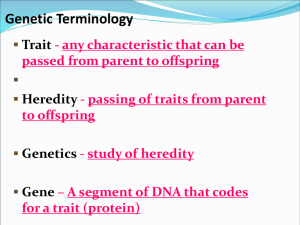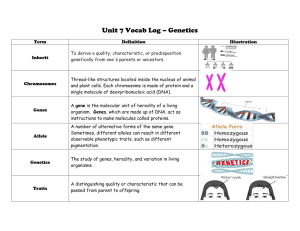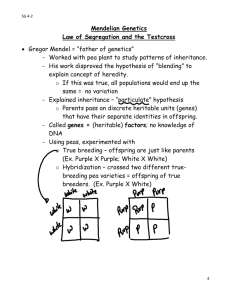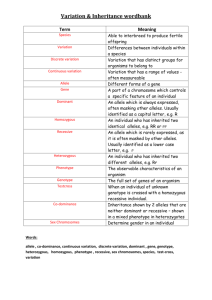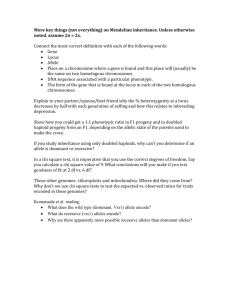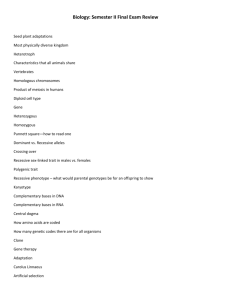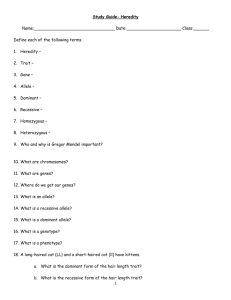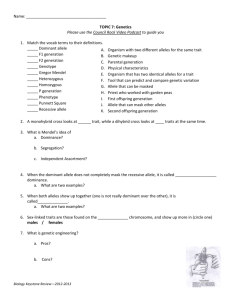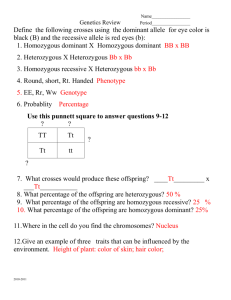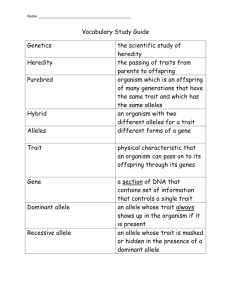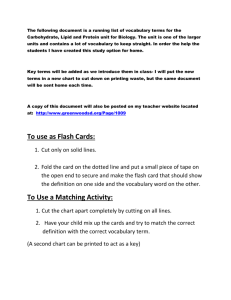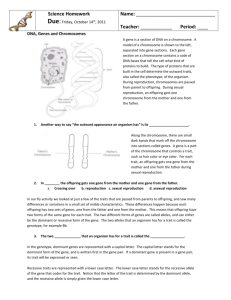Heredity Answers for Study Guide
advertisement
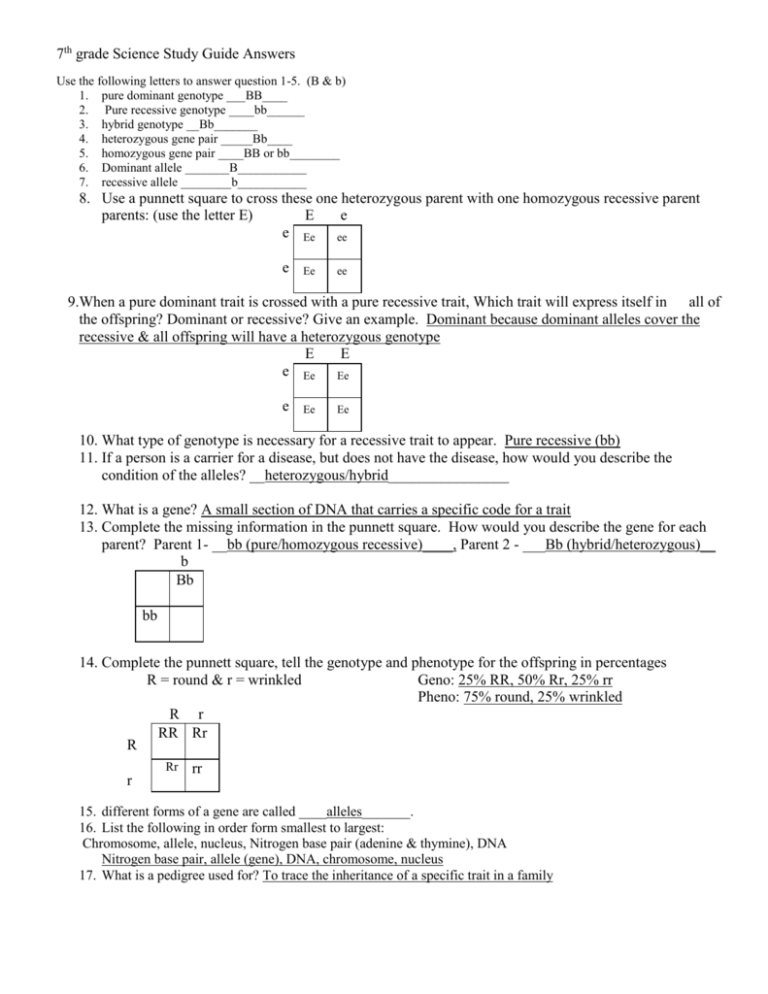
7th grade Science Study Guide Answers Use the following letters to answer question 1-5. (B & b) 1. pure dominant genotype ___BB____ 2. Pure recessive genotype ____bb______ 3. hybrid genotype __Bb_______ 4. heterozygous gene pair _____Bb____ 5. homozygous gene pair ____BB or bb________ 6. Dominant allele _______B___________ 7. recessive allele ________b___________ 8. Use a punnett square to cross these one heterozygous parent with one homozygous recessive parent parents: (use the letter E) E e e Ee ee e Ee ee 9.When a pure dominant trait is crossed with a pure recessive trait, Which trait will express itself in all of the offspring? Dominant or recessive? Give an example. Dominant because dominant alleles cover the recessive & all offspring will have a heterozygous genotype E E e Ee Ee e Ee Ee 10. What type of genotype is necessary for a recessive trait to appear. Pure recessive (bb) 11. If a person is a carrier for a disease, but does not have the disease, how would you describe the condition of the alleles? __heterozygous/hybrid________________ 12. What is a gene? A small section of DNA that carries a specific code for a trait 13. Complete the missing information in the punnett square. How would you describe the gene for each parent? Parent 1- __bb (pure/homozygous recessive)____, Parent 2 - ___Bb (hybrid/heterozygous)__ b Bb bb 14. Complete the punnett square, tell the genotype and phenotype for the offspring in percentages R = round & r = wrinkled Geno: 25% RR, 50% Rr, 25% rr Pheno: 75% round, 25% wrinkled R r RR Rr R Rr r rr 15. different forms of a gene are called ____alleles_______. 16. List the following in order form smallest to largest: Chromosome, allele, nucleus, Nitrogen base pair (adenine & thymine), DNA Nitrogen base pair, allele (gene), DNA, chromosome, nucleus 17. What is a pedigree used for? To trace the inheritance of a specific trait in a family 18. Use the pedigree to answer the following questions a. what do the squares represent __male_ b. what does it mean if the circle is half shaded __carrier but does not express the recessive trait___ c. How many females express the trait of color-blindness 1_ d. if the female from generation IV-6 marries a dominant male (non color blind), what is the chance of having a daughter with the disorder? A son with the disorder? 0% chance for the daughter & 50% chance for the son (N = Normal & n = color blind) XN Y N N XN X X Xn X NX n X NY XnY 19. What is the difference between genetic engineering and selective breeding? Genetic engineering: the actual DNA is altered in some way by inserting a needed gene directly into a persons cells Selective breeding: specific traits are selected in the parents in order to ensure they are passed to the offspring & the genes are not actually altered 20. List some positive uses for selective breeding. The traits can easily be predicted. You can produce offspring that can serve a specific purpose 21. List some benefits of genetic engineering and give specific examples Make medication and treat diseases: create bacterial cells that produce important human proteins such as insulin. cure human genetic disorders: use virus to deliver the good gene to cells in the lungs of someone with cystic fibrosis Improve crops: Insert bacteria DNA into rice, wheat, and tomatoes to enable plants to survive in colder temps, poor soil conditions, and resist insect pests. 22. What is the purpose of DNA in the nucleus of a cell to carry the codes that contain information about the proteins needed to form specific proteins needed to build certain traits that the organism can express 23. What is incomplete dominance? give an example when both alleles express themselves as a blend and neither allele dominates the other allele Red flower (RR) is crossed with a white flower (WW) and all the offspring are pink (RW) W W R R RW RW RW RW 24. Based on the pedigree below, what can we determine about the phenotype of the offspring in the 3rd generation? The child could be hybrid or pure dominant and will have attached ears Ee Ee E = Attached Ears e = unattached Ee Ee EE ee ? 3rd generation
